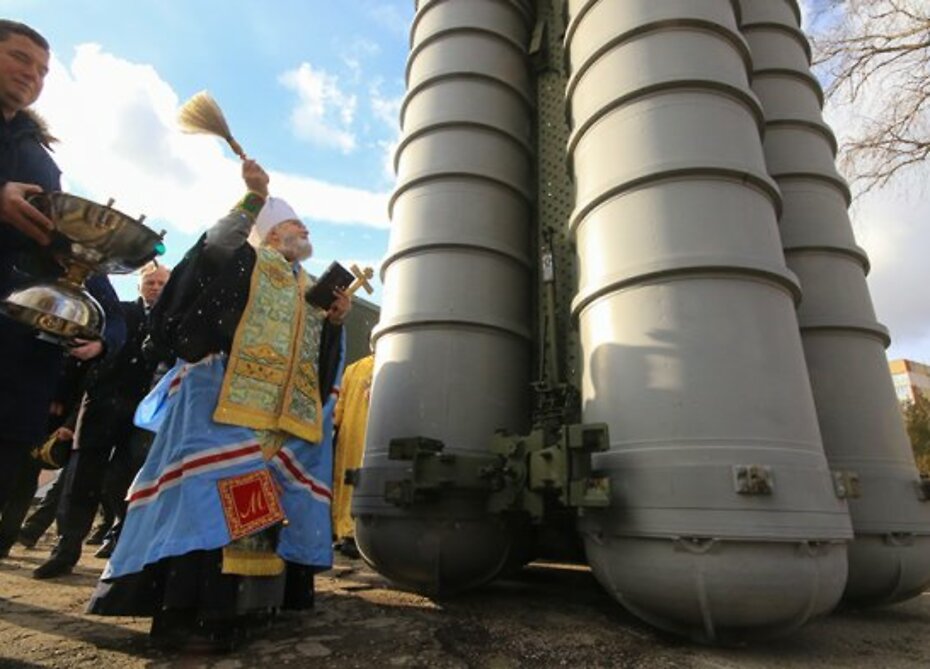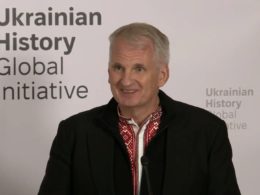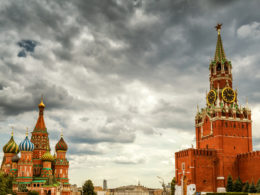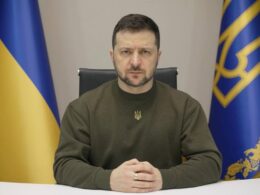The firm position of the UK, USA, and France concerning the use of nuclear weapons convinced Russia's president Vladimir Putin to abandon his nuclear threats, according to the Financial Times.
A year ago, three Western nuclear countries warned Russian leadership that the use of nuclear weapons would have grave consequences for Russia, which eliminated nuclear threats from Russian rhetoric for a long time, according to the Financial Times.
Vladimir Putin first hinted at the possibility of a limited nuclear strike on Ukraine in his speech on the eve of the full-scale invasion of Ukraine in February 2022. After the annexation of four Ukrainian regions in September 2022 (namely, the Kherson Oblast, Zaporizhzhia Oblast, Donetsk Oblast, and Luhansk Oblast), the Russian president promised to "use all means at his disposal" to defend these gains.
What if Russia nukes Ukraine? Military strategist Lawrence Freedman explains
Such threats prompted the United States, UK, and France to warn Russia that they would respond with conventional weapons in case of a Russian nuclear strike on Ukraine," the Financial Times reported, citing unnamed current and former officials in the USA, UK, and France.
According to the Financial Times, Chinese leader Xi Jinping also personally warned Vladimir Putin against the use of nuclear weapons, in particular during his visit to Moscow in March 2023.
After all, in the fall of 2022, Vladimir Putin publicly admitted that the use of tactical nuclear weapons would make "neither political nor military sense." However, in 2023, Russia resorted to nuclear blackmail again to deter further military support for Ukraine from its Western allies, according to the Financial Times.
From “nuclear backpacks” to “orgy” plans – Ukrainians brace for a nuclear strike
Last summer, Vladimir Putin ordered the deployment of nuclear weapons in neighboring Belarus. On 14 June 2023, Belarusian dictator Aliaksandr Lukashenka announced that Belarus started taking delivery of Russian tactical nuclear weapons. Thus, Belarus and Russia violated the Nuclear Non-Proliferation Treaty (NPT).
The Soviet Union joined the NPT in 1968 (obligations and rights now assumed by Russia). Belarus joined the NPT on 23 May 1992 with Ukraine and Kazakhstan. Only four countries worldwide have not joined the NPT, namely India, Israel, Pakistan, and South Sudan.
The NPT is an international treaty
whose objective is to prevent the spread of nuclear weapons and weapons technology, promote cooperation in the peaceful uses of atomic energy, and achieve nuclear disarmament and general and complete disarmament.
On 25 October, Russia conducted drills of Strategic Nuclear Forces. During the drills, Russia’s Strategic Nuclear Forces practiced “a massive nuclear strike in response to an enemy attack.” the Russian Defense Minister Sergei Shoigu reported to the President of Russia, Vladimir Putin.
The announcement of the nuclear drills coincided with the completion of the procedure for withdrawing the ratification of the Comprehensive Nuclear Test Ban Treaty (CTBT) in the lower house of the Russian parliament (Duma).
On 25 October, Russia's upper house Federation Council (Soviet Fiedieratsii) unanimously approved a bill revoking the ratification of the CTBT.
The CTBT is an international treaty envisioning the banning of nuclear weapons tests and any other nuclear explosions. The UN General Assembly adopted the treaty in 1996. Since then, the treaty has been signed by 186 countries and ratified by 177.
Related:
- Russia simulates nuclear strikes in drills, exits test ban treaty
- Russia's transfer of nuclear warheads to Belarus part of long-term effort to cement control - ISW
- Russia deploys first batch of nuclear weapons to Belarus
- If Putin's nuclear blackmail works against Ukraine, Poland or Estonia will be next
- Russian nuclear strike would almost certainly draw "physical response," NATO official said
- US gives Ukraine equipment to deal with nuclear attacks, NYT says
- BILD: Russia plans to strike Ukraine with a space rocket





